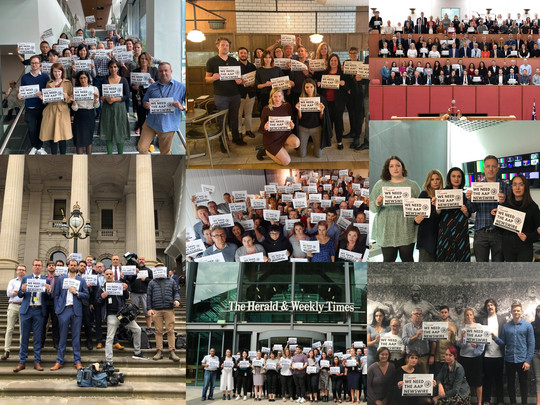Majority shareholders of AAP, News Corp and Nine Entertainment stated AAP will close after 85 years as it is “no longer viable”. Newsrooms across Australia will feel the impact of AAP newswire service closure that has been described as “journalism’s first responder”. MEAA media director Neill Jones said AAP’s “work may often go unattributed and without a byline, but without it, Australians would be less informed about politics, sport, crime and other news."
After the announcement, further revelations came to light from workers who had been reassured for months that the “company was in good shape”. A disturbing lack of communication continues to pervade the anticipated shutdown of AAP with reports that News Corp and Nine Entertainment no longer wanted to subsidise news services for competitors, and that the move was allegedly made to intentionally damage smaller media outlets. The Australian Competition and Consumer Commission (ACCC) said they are “aware of the announced closure of AAP” and are monitoring the potential issues.
MEAA noted how Google and Facebook have disrupted media revenues in Australia by providing free content, resulting in news outlets losing subscribers. In an inquiry to the ACCC, MEAA urged the federal government to levy revenue on digital platforms distributed for public interest journalism. The AAP made a similar proposal to the inquiry.
MEAA said: “In its final response to the ACCC inquiry last year, the federal government failed to pick up on this recommendation or even to introduce proper regulation of digital platforms. The AAP crisis makes it imperative that this proposal be revisited. The government must deal with the serious case of market failure that is resulting in a decline in quality public interest journalism, which is essential for our democracy.”
The IFJ said: “The consequences of AAP’s closure will have widespread impacts on news coverage and media reporting in Australia for years to come. This move highlights the power imbalance at play in Australia where a limited number of players now hold power over the press and democracy. Diversity and strong, independent journalism is the great casualty here. We stand in solidarity with all the journalists impacted by this death knell.”

